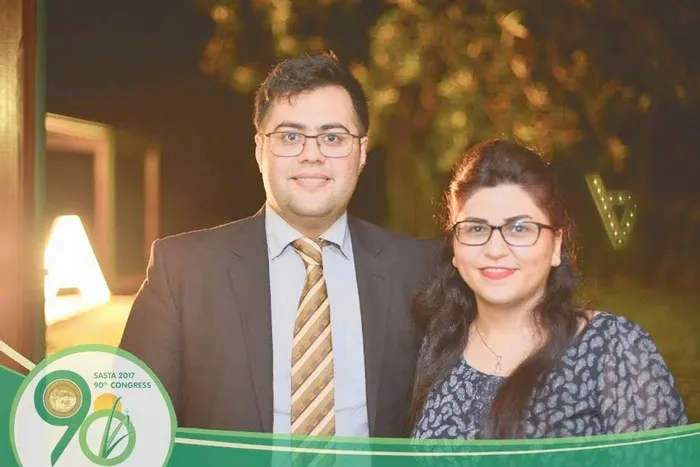Chemistry drew couple together

Rasoul Hassanalizadeh and Parisa Doubra Rasoul Hassanalizadeh and Parisa Doubra
DURBAN - Iranian couple Rasoul Hassanalizadeh and Parisa Doubra, who both graduated with PhDs in chemical engineering, hope to make the world a better place through their work.
Hassanalizadeh said to graduated together with doctorates in engineering was a dream come true.
“I cannot thank God enough for the blessing of having my wife as a soulmate, friend and classmate in this graduation,” said Hassanalizadeh.
The couple, both 30, met in 2013 while studying for their Master’s in chemical engineering at Mazandran University of Science and Technology in Iran.
They fell in love and married in 2014.
They chose the University of KwaZulu-Natal (UKZN) for their PhD studies because of its internationally-recognised Thermodynamics Research Unit (TRU).
The couple are living in Glenmore, Durban, while they complete their post-doctoral studies.
“Once I finished my MSc studies, I started to look for PhD positions alongside Parisa. The University of Strathclyde in Scotland, the University of Jiao Tong in China and UKZN were top institutions, among others, that we were able to secure funding scholarships for our PhD studies.
“Looking at the research outcome of the TRU, which is normally ranked among the top three thermodynamics groups globally, motivated us to join this institution in February 2016.”
Hassanalizadeh was motivated to pursue his PhD by the belief that the world required energy-efficient technologies to overcome the problems it faced.
He believes that thermodynamics (the physical science of heat and its relation to other forms of energy) is essential for this.
Doubra’s PhD project was developing new technology to overcome the massive energy requirement for the production of sugar.
“The new, gas hydrate-based method can reduce energy usage by at least 20% compared to the conventional method,” she said.
Doubra said studying while being married was difficult.
“You must be very patient. Do not give up and try to work hard and smart. Rasoul had to perform toxic gas (NF3) measurements for his thesis.
"During his measurements, while trying to follow all the safety tips, I sat behind the entrance of the lab every day during those two months to get a quick check if something went wrong.”
Doubra said losing her mother to skin cancer in 2017, during her studies, was one of the hardest challenges she had faced.
“My mom was the symbol of everything good in the world. She was my role model who taught me patience and fortitude. Her passing left me broken but the feeling of her spiritual presence gave me the strength to fulfil my studies in the best possible form.”
Hassanalizadeh added that the loss was also hard for him as she treated him like a son.
“Despite the ups and downs of the past four years, we were successful in attaining the most challenging qualification yet in our lives.”
He said it was ultimately the love and sacrifice from his wife that helped him cope.
The couple are both post-doctoral scholars at TRU.
Doubra’s current project focuses on desalination studies as well as energy storage systems.
Before the lockdown, Hassanalizadeh was performing research related to the extraction of rare earth elements from fluorescent light bulbs.
“We would like to stay in the field of research so we can remain up-to-date and help the world turn into a better place,” said Doubra.
The couple thanked not only each other but their families and their supervisors – Professors Prathieka Naidoo, Deresh Ramjugernath and Dr Wayne Nelson.